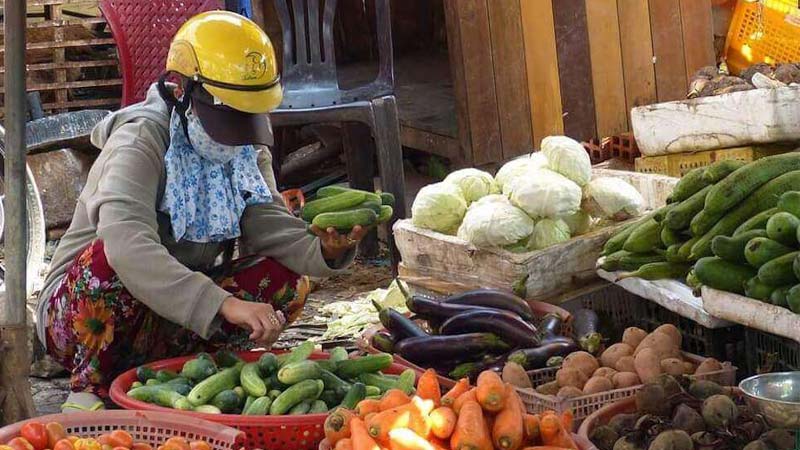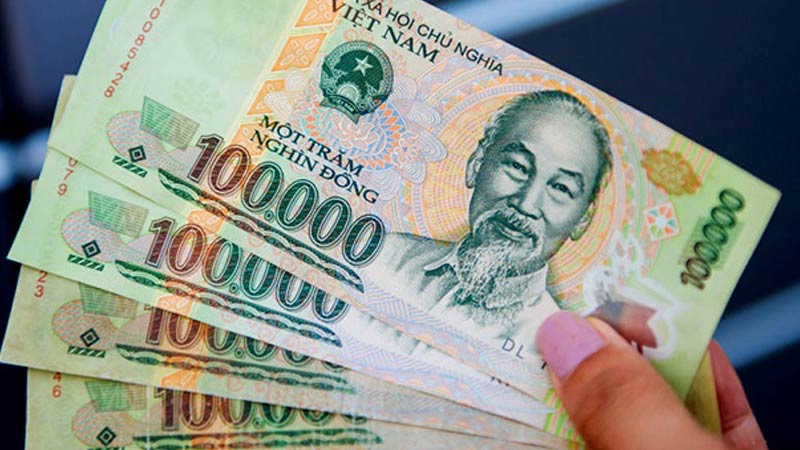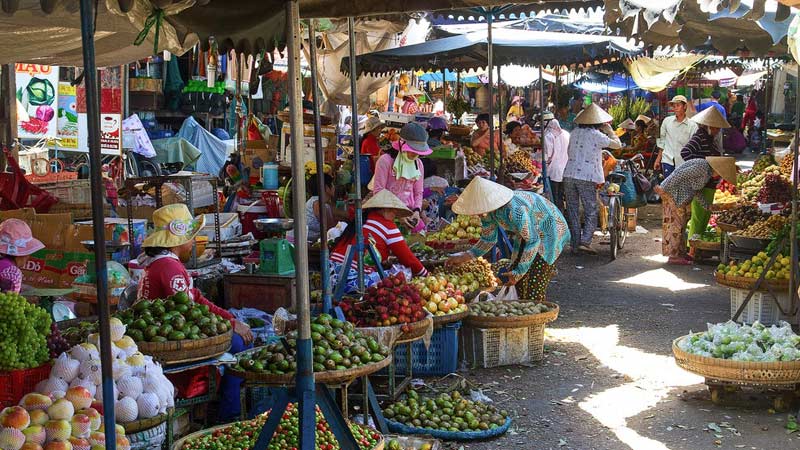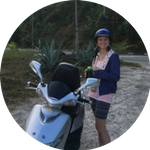But I Don't Speak Vietnamese! Teaching English in Vietnam
Written By: Laura Nalin | Updated: January 9, 2024
Written By: Laura Nalin
Updated: January 9, 2024

A standout memory for me during my in-person Chicago TEFL class at ITA was watching how dedicated one of my course mates was to learning the Korean language. Here I was, completely unsure of where I even wanted to teach, and this guy was aggressively studying in the best way possible. He had his mind set on learning Hangul, and impressively, is now fluent in the language and still living in South Korea.
He inspired me to start small; I began learning the alphabet and slowly introduced basic vocabulary into my arsenal. I took private classes and watched K-dramas in an attempt to improve my skill set. While I admire my ability to catch onto new concepts quickly and generally consider myself marginally intelligent, I admit that languages are not easy for me. I managed to get by without much issue, but I really had to keep my nose to the grindstone.
When I relocated to Vietnam from New Zealand in June 2017, I was starry-eyed and confident that I would be able to learn Vietnamese with ease. I was totally wrong. While I am able to convey what I’m trying to communicate 90 percent of the time, I’m almost certain I’m confusing each local that I speak to.
Vietnamese is an inflected, tonal language. The probability of me pronouncing pretty much everything wrong is pretty high, but at least I’m trying. When I was first started learning numbers and produce, I used to walk to my local market and practice asking how much everything cost and attempted to talk my way down to a reasonable price. I’ve ordered fruit from roadside stands when I haven’t even been hungry just to practice.
Despite the fact that I don’t speak Vietnamese well at all, I’m sufficient with the basics, which I’ve listed below.

Numbers
Although numbers may seem like an unnecessary “first” when learning how to speak Vietnamese, it’s quite the contrary. Not only will this skill be beneficial in restaurants and providing an address to a cab driver, knowing the numbers is incredibly important to integrate into Vietnamese society as they bargain pretty much everything. The more often you practice at a local market, the lower the cost of your goods will be, so it’s a win-win for everyone.
- Zero*: Không (Kung)
- One: Một (moht)
- Two: Hai (Hi)
- Three: Ba (Bah)
- Four: Bốn (Bon)
- Five: Năm (Nahm)
- Six: Sáu (S’owe)
- Seven: Bảy (B’aigh)
- Eight: Tám (T’ahm)
- Nine: Chín (Cheen)
- Ten: Mười (Moi)
*You can also use “kong” when saying “without” when you order food. (i.e. “không đường” (kong de’ung) means “without sugar,” which I use frequently.)

Everyday Conversation
Not much explanation needed!
- Hello, at any time of the day: Xin chào (Sin chow)
- Goodbye: Tạm biệt (Tahm be-yet)
- See you again: Hẹn gặp lại (Hen gwep lie)
- Thank you: Cảm ơn (Gahm uhn)
- You’re welcome: không có chì (Khom go chee)
- I’m sorry/Excuse me: Xin lôi (Sin loy)
- Yes: Vâng (Vung)
- No: Không (Kung)
- I don’t speak Vietnamese: Không tôi nói tiếng Việt (Kung toi noy tee-ing Viet)
- Happy New Year*: Chúc mừng năm mới (Chuc mung nam oy)
*You’ll be using this constantly during Tet, more commonly known as Chinese New Year.
Shopping & Food Items
This will come in handy at markets and will give you some street cred among the sea of older ladies hawking their goods. Even though I don’t speak Vietnamese too well, I’ve gained their honor and they’ve stopped overcharging me.
- How much?: Bao nhiêu? (Bow nee-ew)
- That’s too expensive: Quá đắt (Wa daht)
- Bag: Bao (Bow)
- Watermelon*: Dưa hấu (Yuh how)
- Mango: Trái xoài (Trai Zoahy)
- Pho: Phở (Fuh)
- Banh mi: Bánh mì (Bun mee)
- Gasoline: Xăng (Zung)
- Sugar: Đường (De’ung)
- Beer: Bia (Bee-ah)
- Iced coffee with milk: Cà phê sữa đá (Ca-feh sooh duh)
- Rice: Cơm (C’uhm)
*Northern dialect is pronounced “zuh how.”

It’s worth noting that there’s a major environmental movement taking place in Saigon at the moment, so many people are opting to reduce their plastic use. If this interests you, you can bring your own carrier bag to the street markets and state, “Không bao,” (No bag) and people will most likely understand what you mean.
Traveling
It’s more than likely you will eventually navigate the roads on your own motorbike in time, but directions are pertinent for motorbike taxi situations. Don’t drink and drive, yo!
- Turn right: Rẽ phải (Weh fai)
- Turn left: Rẽ trái (Weh trai)
- Go straight: Đi thẳng (Dee tahn)
- Stop here: Dừng ở đây (Zuhn lai)
- Slow down: Đi chậm lại (Dee cohm lai)
- Turn around: Quay lại (Kway lie)
Even though I don’t speak Vietnamese, having knowledge of these terms has made my life in Saigon much easier than it would be otherwise. While the language itself might be daunting, it’s best to stay confident and practice as often as you can. Although you may not be pronouncing it with 100 percent accuracy, the locals will get the gist of what you’re saying. Stay confident and be patient and kind to yourself!

More Vietnam Info:
Laura Nalin
Laura is a Pittsburgh, Pennsylvania native who recently moved back to Chicago after teaching English abroad for nearly six years in both South Korea and Vietnam. During her time abroad, Laura served as an ITA Ambassador providing a wealth of knowledge and content to our alumni and prospective students. A natural helper and leader, she’s currently in the process of earning her Masters in Counseling Psychology.
Want to Learn More About Teaching English Abroad & Online?
Request a free brochure or call 773-634-9900 to speak with an expert advisor about all aspects of TEFL certification and teaching English abroad or online, including the hiring process, salaries, visas, TEFL class options, job placement assistance and more.








